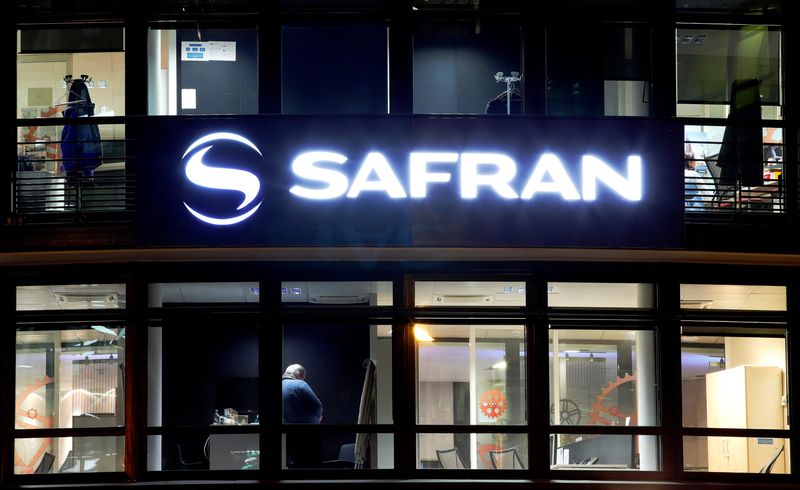By David Carnevali
(Reuters) - French aerospace engine maker Safran (EPA:SAF) SA is nearing an approximately $1.8 billion deal to acquire a Raytheon Technologies (NYSE:RTX) Corp unit that makes flight controls for aircraft, helicopters and missiles, according to a person familiar with the matter.
The deal rids Raytheon (NYSE:RTN) of a low-margin business it inherited from its $120 billion merger with United Technologies three years ago, while expanding Safran's foothold in flight controls against rivals such as Moog Inc, Eaton (NYSE:ETN) Corp, Woodward (NASDAQ:WWD) Inc and Parker-Hannifin Corp (NYSE:PH).
Safran may reach a deal to acquire Raytheon's actuation business that makes flight controls as early as this week, the source said, asking not to be identified because the matter is confidential.
Spokespeople for Safran and Raytheon did not immediately respond to requests for comment.
Safran said on June 5 it was participating in a "competitive process" for Raytheon's flight controls business, without commenting on the chances of an agreement or the terms of a deal. It was responding to a Bloomberg News report that revealed Raytheon was in advanced negotiations with Raytheon about the transaction.
The deal with Raytheon represents Safran's largest acquisition since its $7.7 billion purchase of French aircraft seat maker Zodiac Aerospace in 2018 and is the biggest under Safran CEO Olivier Andries, who took over in 2021.

The Raytheon business will strengthen Safran's ties with Airbus SE (OTC:EADSY), since it sells into many of its commercial aircraft and has some operations in France. It will also expand Safran's relationship with the U.S. military, selling into F-35 and V-22 aircraft.
The actuation unit was previously owned by Rockwell Collins (NYSE:COL), a company sold to United Technologies in 2018. Raytheon CEO Greg Hayes has been seeking to streamline its Collins Aerospace business, transferring some offerings to and from other divisions, as he positions it to benefit from airlines putting in more aircraft orders in the wake of strong travel demand.